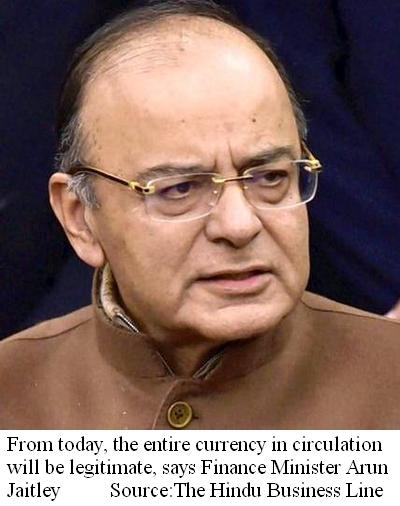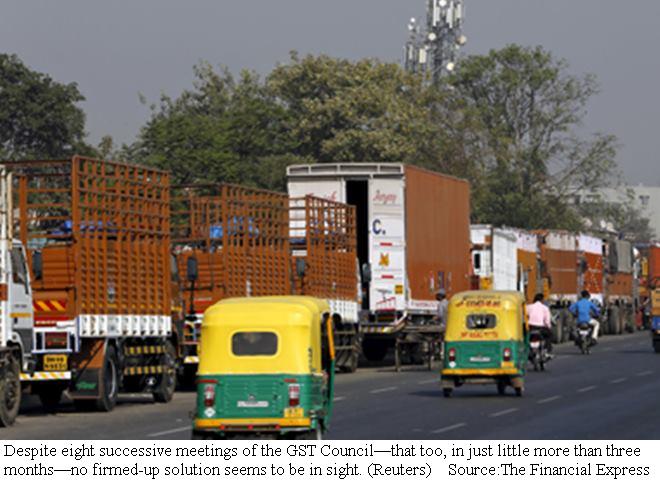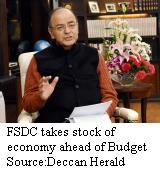|
||||||||
|
|
|
2017-01-30 ArtNo.45910
◆Post-note ban, situation largely normal: Jaitley
 【New Delhi】As the 50-day window for demonetisation came to an end on Friday (30-12-2016), Finance Minister Arun Jaitley stressed that the situation has largely returned to normal. Though he did not comment on when the curbs on cash withdrawals would be removed, Jaitley stressed that the Reserve Bank of India has sufficient stocks to inject more currency into the market. Jaitley further said his officials are tabulating the data on deposits of demonetised currency. “What has come into the system does not make the money white. But, the money loses its anonymity and it can be identified to a taxable entity or person,” he emphasised. ○GST uncertainty alongside demonetisation not good for doing business  【New Delhi】With the eighth GST Council meeting failing to achieve the ever-eluding consensus on critical matters such as GST rates, dual control, taxing powers, etc, GST in India seems to be drifting away after being so near. GST’s tumultuous journey in India began more than a decade ago—then finance minister P Chidambaram, while presenting the FY07 Budget, announced the Union government’s intention of introducing the GST on April 1, 2010. In hindsight, it is now clear that the assumption on the timeline for the Union and the state governments to arrive at a consensus on GST was grossly under-estimated. The possibility of the GST being implemented from April 1, 2017, now looks faint and there seems to be no unison between the Centre and the states on agreeing to the new implementation date. Though many state finance ministers have publicly claimed a new likely date, there seems to be no official communication. This is the last thing industry expects, while working in already volatile market conditions. While the jury is not out on the exact impact of the demonetisation on the economy, doing business in this uncertainty is definitely not the best situation. It is hoped that a consensus would finally emerge in the next meeting of the GST Council (scheduled for January 16). Unless there is consensus on all critical matters, all the preparations for GST—whether by the Union government (going ahead full steam on the GSTN initiatives) or by the state governments (like running GST training sessions) or by trade and industry (like reconfiguring supply-chains/IT systems)—would prove futile. But then, it is another meeting of the GST Council on another day! With the knotty issue of dual control having been somehow sorted out, July 1 is the next moving goalpost for GST to make its arangetram in India. The Government has the comfort of knowing that even if the July target is missed, they still have a final target date of September to make GST a reality. ○FSDC takes stock of economy ahead of Budget  【New Delhi】The country’s Financial Stability and Development Council (FSDC), which reviewed the economic situation after demonetisation and ahead of the Budget, has put its stamp of approval on the recent move to ban high denomination notes. Chairing the meeting, Finance Minister Arun Jaitley said the government’s measures to eliminate the shadow economy and tax evasion were expected to have a positive impact both on GDP and on fiscal consolidation in the long run. The Council reviewed the major issues and challenges facing the economy and said India appeared to be much better placed in the league of world economies with the improvement in its macro-economic fundamentals. 【News source】 Post-note ban, situation largely normal: Jaitley GST uncertainty alongside demonetisation not good for doing business GST hurdles FSDC takes stock of economy ahead of Budget ○One world: The aim of SEAnews ◆Recruitment of Ad-SEAnews CanvassersYour Comments / UnsubscribeSEAnews MessengerSEAnewsFacebookSEAnewsGoogleSEAnews eBookstoreSEAnews eBookstore(GoogleJ)SEAnews world circulation |
|
[Your Comments / Unsubscribe]/[您的意见/退订]/[ご意見/配信停止]
Please do not directly reply to the e-mail address which is used for delivering the newsletter. 请别用递送新闻的邮件地址而直接回信。 メールをお届けした送信専用アドレスには返信しないで下さい。 |